Congratulations to the winners of the 2024 round of Lidl Year Abroad prizes!
Each of the prize-winning projects is awarded £200, with the possibility of applying for a further £300 on providing appropriate receipts.
The condition for receiving the award money in the first instance was to turn the application into a blog post entry on the project. After the project, a full report in form of a blog post has to be delivered. Enjoy reading the first set of blog posts from the eight winners of the combined 2023 & 2024 round!
Alexander Archer: Generative imagery video project in Leipzig
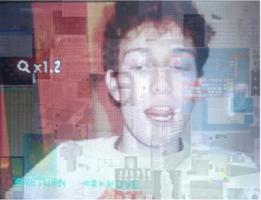
My year abroad project will be a video art project exploring the new status of images in the age of the internet. I would produce short films exploring the aesthetic possibilities of generative (AI) imaging software, projection, and other software tools which have led to a new visual economy of the 21st century. Over the course of my degree so far—Philosophy and German—I have built up an extended engagement with the aesthetic theories which have shaped the contemporary cinematic and artistic avantgarde, specifically in the interstices between text and image. Next year, I plan to study Kunstgeschichte at the University of Leipzig, in order to expand my engagement with art-historical and cinematic discourses, with the ultimate goal of integrating what I learn on that course into my already-existing practice as a filmmaker. I have already made a few short films which use editing techniques to recontextualize films and images into new forms, subjecting them to interventions from music and literature. In one instance, I took footage from Daisies (1966) and Mothlight (1963) and juxtaposed them with post-hardcore music by the band Unwound from the late 90s, as I was trying to integrate experimental 60s cinema into a new contemporary context and show how their futuristic aesthetic has become historicized and subject to a kind of hauntology, as manifest in subsequent music and imagery. (A link to the project can be found here.)
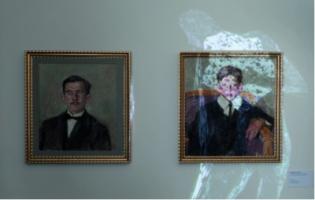
Emily Cunningham: Making & Donating Clothing to Women’s Shelters
The project I will be doing during my year abroad is designing and making adjustable and versatile clothing for women’s shelters in Bremen. I will be doing this along side working 20 hours a week at the Städtische Galerie Bremen from October to mid-September next year. I intended to keep some sort of vlog record of my year abroad for myself, and now will be able to record my creative process and look back on it in the future. Obviously, for safety reasons, I will not film the locations of shelters or the women in them, but may ask if anyone would anonymously take part and give opinions or suggestions on the clothing. I thought of this project because I wanted to get the most out of my year abroad while developing my creative abilities and supporting a community. I have benefited from charity shops and hand-me-downs from neighbours or relatives since I was a baby, which have since been handed down to others, and want to make sure I give back so others can benefit too. Likewise, I also understand the importance of owning new clothing and the confidence it can bring, especially to women when so much value is placed on our appearance. I hope to make adjustable clothing so whoever receives it is able to have it fit them well, even if they change sizes. I am incredibly excited to undertake this project, and intend to have all the clothing given to the women themselves, not retained by the shelter, except for a few sets of pyjama sets and business attire in straight and curve sizes.
I have researched women’s shelters in Bremen, the ones closest include Autonomes Frauenhaus Bremen, Frauenhaus der AWO and Mädchenhaus Bremen GmbH, the last of which is for girls aged 12-17. I intend to contact these shelters once this prize’s outcome is announced to discuss their willingness to receive donations and suggestions regarding my work. There are many fabric stores in Bremen, notably Kraft-Stoff Bremen, which identifies as women-owned, and Stoff-Haus Bremen am Dobben, which sells sewing machines and fabric. Both are also fully wheelchair accessible – which, alongside ethics, is crucial for me.
Helen Edwards: #berlinfluencer
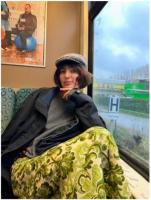
How do you fit in in Berlin? Become a techno-head? Only wear black leather? Get an extreme haircut? Or, just be… cool? For some, these stereotypes epitomise the appeal of Berlin (in some cases, so much so that they decide to study German at university just so they can spend a year in Berlin…), whilst for others they alienate the city, making it seem exclusive, or even weird. Whichever of the two categories you fall into, one fact remains true: Berlin’s style is cool. In case it isn’t obvious already, I fall into the first category, and so I am going to create a YouTube channel dedicated to documenting and unpacking Berlin’s fashion scene. The content will consist of monthly standalone videos focussing on a different aspect, and at the end of the year I will use my footage and findings to produce a long-form video essay. Because social media will be a vital part of the project, I’m going to call it “The #Berlinfluencer”. (Unless I think of something cooler.)
To keep the project manageable, I aim to upload one video per month. Because social media is so flexible, I can easily add videos to the schedule if I’d like to; I can also change these preliminary video ideas if I need to.
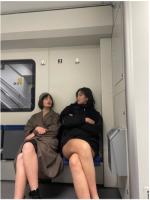
James Etheridge: Eastern European-focused Documentaries
This summer, I will be working in Kobalt Productions’ Berlin office, in their branch Arte Tracks East. The broadcasting station films and edits short documentaries, currently focusing on the ongoing war in Ukraine, to highlight the impact that it will have on the rest of the world for generations to come, while also bringing global attention to lesser-known political and social issues in and around Eastern Europe.
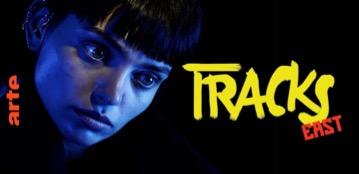
This is a project that I am particularly passionate about. The Russian aggression that we have witnessed in the last few years has proven to be destructive on a world-wide scale, the fallout from which will take decades to recover. Yet behind the headlines on the news, the voices of everyday people living on both sides of the conflict are often left unheard. This is exactly what Tracks East strives to change: to give power to those people most affected by the conflict through their protagonist-centric documentaries. Kobalt’s deeply personal approach in their work is what attracted me to the project, and it will be a real privilege to work with them.
My role will involve researching potential topics, personally reaching out to protagonists and helping the team in the editing room. I’ve spent the last few months fulfilling part of my modern languages course, learning Russian while living in Kazakhstan and travelling around Central Asia and the Caucasus - areas that have not yet been heavily featured by Tracks East, but which I believe are deserving of the international recognition that the program could help to bring them. I’m hoping to draw Kobalt’s attention to the region as holding a wide range of fascinating political and social issues, using my experience and extensive travel there to help, as well as the many local contacts I have met along the way. I have developed a real passion and care for this area and look forward to the opportunity to share this with as many people as possible.
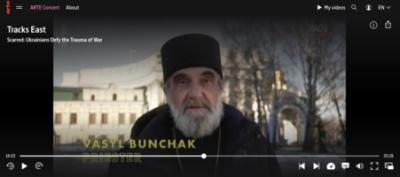
Eliza Hogermeer: Documenting Drama in Berlin
For the first five months of my year, I will be based in Berlin, arguably the heart of German theatre for the majority of the 20th Century. There I will endeavour to take evening acting classes, go along to talks and meet with theatre makers to ask them about their experiences in German theatre. As a budding filmmaker, I would like to format my findings in an artistic documentary-style format so that the stories and insights of the interviewees have a coherent and visually pleasing thread to bring them all together. As someone with a deep passion for the stage – both on and off – my determination has grown to document the practices and techniques of those practitioners and theatremakers living in Germany today. I have applied both to drama school and for drama internships all over Germany, so these locations have not yet been decided. However, I plan to go along backstage to plays, review performances and get involved myself. I’d also like to compare theatre from the past with the present and future practices of German, both to better understand the roots of the craft, but also bring more information to those who may not know as much about the theatre scene in Germany. The aim for my project is to be one that is educational and engaging and could serve as an introduction to Germany and German theatre today for a complete beginner.
Mor Stinchcombe: Translating and vlogging ‘Slaughterhouse-Five’
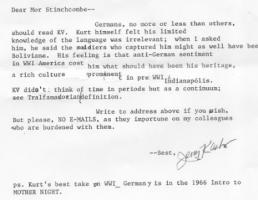
My project takes the form of a translation of Slaughterhouse-Five into German, with essays in both English and German covering such questions as, “Should Germans read Slaughterhouse-Five?”, “What relationship does Kurt Vonnegut bear to German literature?” and “Who should ‘mention the war’?”, I hope to understand the bombing of Dresden in the light of Anglo-American shared experience and yet, equally, how both cultures conceive literarily of their wartime historiography. As per Vonnegut’s writing style, this will all be typed on a typewriter as I listen to jazz music. Any writing progress will be posted on medium and I will make my interviews with leading Vonnegut academics, such as Robert T. Tally and Donald E. Morse, as well as museum workers at the Bundeswehr Military Museum and the Dresden City Museum, available for free (with consent, naturally).
Ella Turner: Notions of gender interact on the Oktoberfest
In my project, I intend to create a portfolio of pictures of traditional Bavarian clothing, as this is where I will be based for my year abroad, not only on women’s clothing but also on men's. I have been studying the Masculinities paper for History this term. I am particularly intrigued by how gender ties together with an understanding of clothing and associations with costume. The Munich Archives and Bavarikon will also allow me to explore historical understandings of these costumes and how gendered notions of clothing have changed.
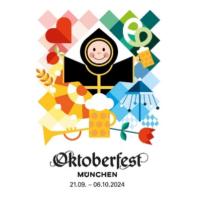
The project will address three key questions:
- How is traditional clothing worn at Oktoberfest perceived now and through archival accounts, and how has this changed?
- How does traditional clothing and identity interact?
- How does visual culture interact with gender constructions now and then?
Tara Williams: Compositions inspired by E.T.A Hoffmann
Grüß Gott! My name is Tara, and I am currently studying abroad in Bamberg, Germany, as part of my German degree here at the University of Oxford. For my LIDL Year Abroad Project, I intend to compose a short anthology of poems inspired by the literary works of E.T.A. Hoffmann, a renowned German author, artist, and composer during the Romantic period.
Hoffmann has a particular connection to the town of Bamberg, having lived there during the formative years of his career from 1808 to 1813, so I feel that choosing his works as my inspiration would be an interesting companion to my studies in Bamberg and could allow me to explore the city’s history (and Hoffmann’s connection to it) from a unique perspective. Having read some of Hoffmann’s works during my second year at Oxford, I am particularly inspired by the psychological horror that he often employs; Hoffmann’s work features many juxtapositions between the whimsical and the grotesque, meaning that I would be able to take inspiration from this by depicting a variety of moods in my poems. The two texts that I am particularly interested in exploring – ‘Der Sandmann’ (‘The Sandman’) and ‘Der goldne Topf’ (‘The Golden Pot’) – are excellent examples of this, as Hoffmann evokes a dark yet fantastical atmosphere that creates a sense of intrigue throughout both works. Furthermore, I would be interested in considering the potential of employing particular poetic forms to enhance the meaning behind some of the poems that I will write.

I will commence work on my project in the summer whilst still in Bamberg, reflecting on my experiences both of the year so far and the weeks yet to come. At this stage I will plan the rough structure of the anthology, deciding which scenes from the two Hoffmann works to take my inspiration from and considering how I can connect these with my own experiences from my time in Bamberg. The writing process will then commence, concluding at the latest at the end of the Long Vacation. If time allows, I may be able to present the anthology in a more artistic manner, with accompanying illustrations or calligraphic elements; as digital art is a particular passion of mine, I would enjoy having the opportunity to utilise it within this project.